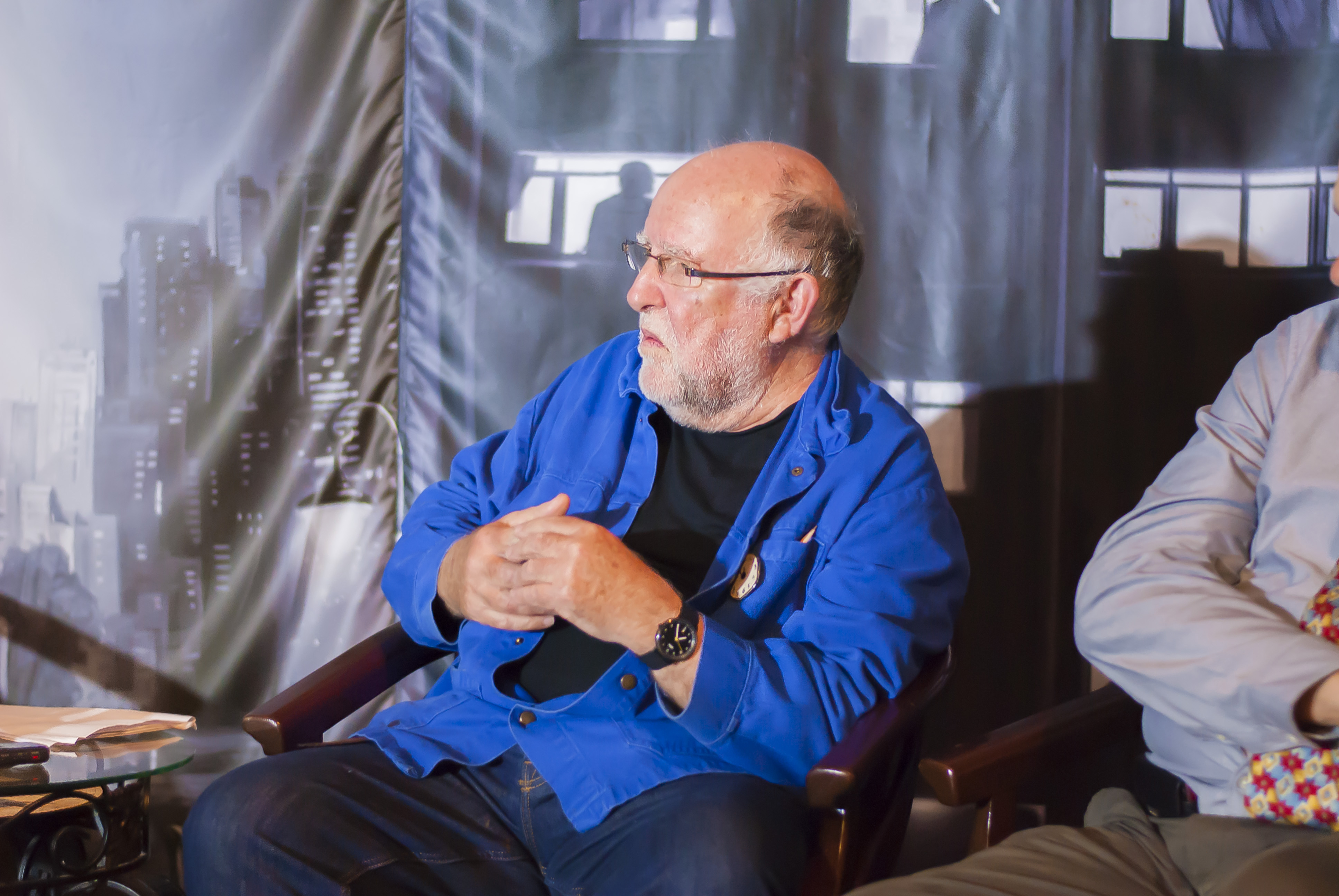
BREAK THE RULES: 11 IMPORTANT OBSERVATIONS BY BILL MCALISTER (+VIDEO)
On the creative power of the youth
When I first visited Ukraine 25 years ago, I found myself at an art academy. The method the professors were using was simple: make the students paint the way their teachers paint. Since then everything has changed. New media, the digital world... Everything–from contemporary dance to contemporary theatre–is moving forward. That is why it is simply impossible for the older people to teach the youth to do what was done before. We in Britain don’t have a revolution because the evolution process is continuous. We are constantly reforming our universities, changing them. And I think that the energy and vision of what should be changed comes indeed from the young people.
If I were asked what in my opinion were the most important actions of the Ukrainian government, I would say that they were collaboration with young, bright and creative people. Those people who have imagination and technical skills necessary to be able to move forward. Today in Kyiv I have been meeting with a large number of fantastic people that I would have never hoped to meet here. They are building new institutes and think creatively. So here we have everything that the government needs: collaborate with them and listen to them. This is of utmost importance. Other recommendations can vary. That is why I will not recommend 5 steps to the Ukrainian government; they have thousands to take.
I am not so young anymore, and I understand that there is a lot for me to learn from the new generation. I believe that the number of powerful minds is evenly distributed around the world, but in many countries society has got used to living the old way. And when this is the case, progress in these countries significantly slackens.
On tools for reforming everything around
Creativity and creative industries are tremendously profitable from the point of view of the economy. Politicians would be wise to pay attention to them in times of crisis. Renewing a country’s architecture, reforming the publishing business, TV and so on should not be carried out without the help of the creative class.
On culture as a means to achieving understanding
In Kyiv I always feel a sense of guilt before my friends. Because I have a great time here, while they don’t even have a clue of how wonderful this city is. I would like to see Ukrainians become aware of the power of the culture they have. And the world is interested in seeing this culture. Here, many talented people who work with ideas that are interesting to the world live. I think this is precisely what will help Ukraine find partners in business, diplomacy and other spheres. Culture is one of the means of achieving understanding. When you share happiness and pleasure, consensus is born.
Ukraine is located in a border zone, between Russia and the West. Moldova, Belarus, Georgia, Azerbaijan and Armenia share this position. In my opinion, it would have been great for all these countries to start closely collaborating, sharing ideas and experience. I am also waiting for my country, Great Britain, to start collaborating with creative people from these countries. I know that today there are still many obstacles, including visa policies. We really have a lot to do still, but we are beginning to share culture with each other, and this means that soon we will also share understanding.
On the transformation work of the National Complex Expocentre of Ukraine in Kyiv
It is very exciting working with the team that is transforming the Expocentre into a creative cluster. These guys are intelligent, full of enthusiasm, I believe in them fully. Dealing with them is a real pleasure. I have to say that it is a huge project that, if successfully carried out, will give pleasure to many people. And my role in the project does not involve saying WHAT should be done, but rather HOW it should be done. I examined three similar projects in London, one of them, King’s Cross, has been very successful. And very soon I will introduce the Ukrainian team to the British experience, point to blatantly losing moves and determine areas for manoeuvres.
On the importance and necessity for breaking rules
I used to be a social activist. We organised campaigns against discriminatory rules in our society, so that the voices of those usually unheard could be voiced. For instance, we had to go out into the streets and block traffic because authorities had decided to build multi-storey buildings without allocating spaces for children playgrounds around them.
Besides, you find rules that are not only unreasonable but also created for you or in your name. For instance, when I was the director of the Institute of Contemporary Art (ICA), I heard that a visitor with a dog was not allowed to come in. When he asked, “Why not?” he got the response that the director, me, just couldn’t stand dogs. Obviously, I immediately changed that rule, allowing visitors with dogs, if they behaved well.
Sometimes rules should be broken to change attitudes towards something. In the North of England, a modern sculpture entitled Angel of the North was completed in 1998. It is a huge steel angel, 20 metres tall, weighing more than the Statue of Liberty. All the local population, including my mother, hated it. Then one day, football fans put a huge t-shirt on the angel. Following that, local residents, especially the young, accepted it and grew to love it.
I first visited Ukraine some 25 years ago, to meet unusual, courageous artists; most of them are represented now at PinchukArtCentre as historical personalities. At the time I was simply astounded by what they were doing! They were masters of breaking the rules and they were making history. It is interesting to note that all wise men acknowledge the importance and necessity of breaking rules. The Dalai Lama said, “Know the rules well, so you can break them effectively.” Or my favourite quote from Katherine Hepburn, “If you obey all the rules you miss all the fun.”




